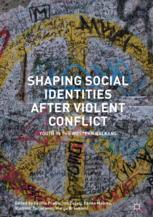

Most ebook files are in PDF format, so you can easily read them using various software such as Foxit Reader or directly on the Google Chrome browser.
Some ebook files are released by publishers in other formats such as .awz, .mobi, .epub, .fb2, etc. You may need to install specific software to read these formats on mobile/PC, such as Calibre.
Please read the tutorial at this link: https://ebookbell.com/faq
We offer FREE conversion to the popular formats you request; however, this may take some time. Therefore, right after payment, please email us, and we will try to provide the service as quickly as possible.
For some exceptional file formats or broken links (if any), please refrain from opening any disputes. Instead, email us first, and we will try to assist within a maximum of 6 hours.
EbookBell Team

5.0
30 reviewsThis book examines the identities of young adults in Bosnia-Herzegovina, Serbia, Kosovo, and Macedonia. With research drawn from a large multidisciplinary project exploring a potential for reconciliation in post-conflict societies, the authors discuss the interplay between ethnic, religious and national identities that have been the source of recent violent conflicts. They focus on people aged 18-30, representing generations that are socialized after the wars, but live in ethnically divided societies burdened with a difficult history. Another aim of the project was to compare majority and minority perspectives within each country, and to provide a unique view on how to reinterpret and build more inclusive social identities. Scholars and organizations interested in areas of social psychology, political science and sociology will find this research of great value.